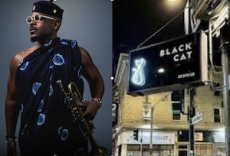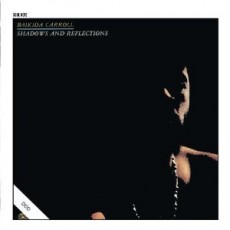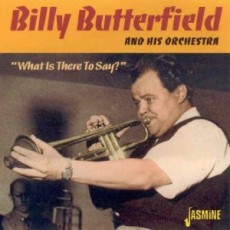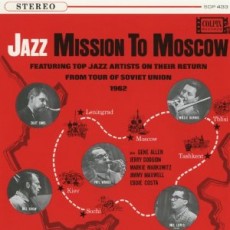
ETIENNE CHARLES
Trinidad born Etienne Charles is a performer, composer and storyteller, who is constantly searching for untold tales and sounds with which to tell them. His lush trumpet sound, varied compositional textures and pulsating percussive grooves enable him to invoke trance, soothing and exciting listeners while referencing touchy and sometimes controversial subjects in his music. Highlighting marginalized communities and engaging with them has been his mission, evident with projects such as his Guggenheim Fellowship Project, Carnival: The Sound of a People Vol. 1, San Jose Suite, Creole Soul, Gullah Roots, Folklore and his latest commission, San Juan Hill – A New York Story.
His concerts engage, enlighten, educate and enrich audiences with energized multidisciplinary performance utilizing original composition, thematic improvisation, dance, short films and spoken word to create a holistic experience. A firm believer in music and performance as a tool for provoking thought and dialogue, Charles’s themes speak to the status quo while drawing parallels to history. His work is actively connecting the African diaspora and drawing lines to the regions at the roots of migrations, evident in his latest release, NAACP Image Award nominated Creole Orchestra which was named #1 Jazz album on Jazzweek’s top 100 of 2024 after spending seven weeks at #1 on the chart in the summer.
His dedication to music as a tool for social uplift has seen him named as a Laureate of the Arts and Letters, Anthony N. Sabga Awards, Caribbean Excellence (2025). He was conferred the title of Chevalier de l’Ordre des Arts et des Lettres by the French Ministry of Culture (2024) and was awarded a Congressional Citation from the United States (2012).
As a sideman he has performed with and/or arranged for Roberta Flack, Chucho Valdes, Marcus Roberts, Marcus Miller, Count Basie Orchestra, Frank Foster’s Loud Minority Big Band, Monty Alexander, Gregory Porter, Terri Lyne Carrington, René Marie, David Rudder, Machel Montano and many others. He has been commissioned as a composer and arranger by Alvin Ailey American Dance Theater (2025), Lincoln Center for the New York Philharmonic (2021), Savannah Music Festival (2017), Chamber Music America (2015 & 2021), the Charleston Jazz Orchestra (2012), the Chicago Jazz Ensemble (2011) and the Danish Radio Big Band (2025).
He currently serves as Professor of Studio Music and Jazz at University of Miami Frost School of Music
The Band:
Etienne Charles ~ Trumpet
Mikailo Kasha ~ Bass
Miles Turk ~ Drums
Tickets: $20.00, $30.00, $40.00, $50.00 +$5.50 processing and ticketing fee.
More Posts: adventure,bandleader,club,genius,instrumental,jazz,music,preserving,travel,trumpet

Daily Dose Of Jazz…
Baikida Carroll: From St. Louis Streets to the Avant-Garde
Some musicians are born into jazz, literally. Baikida Carroll arrived on January 15, 1947, in St. Louis, Missouri, as the son of tenor saxophonist Jimmy Harris. Music wasn’t just in the house; it was the family business, the air he breathed, the language spoken at the dinner table.
A High School Band for the Ages
As a teenager, Carroll played trumpet in his high school band alongside a young pianist named Donny Hathaway (yes, that Donny Hathaway), while studying theory with his mentor Vernon Nashville. Through the All-City Jazz Band, he connected with future innovators Lester Bowie, J.D. Parran, and James Jabbo Ware. These weren’t just bandmates, they were co-conspirators in what would become the future of creative jazz.
Learning the Craft, Breaking the Rules
Carroll sharpened his technical skills at Southern Illinois University and the Armed Forces School of Music, building a foundation solid enough to support the experimental flights to come. Then he dove headfirst into St. Louis’s Black Artists Group (BAG), where he directed their groundbreaking free jazz ensemble. The 1970s found this revolutionary collective recording in Europe, pushing boundaries and redefining what jazz could be communal, spiritual, and liberated from commercial constraints.
Walking Both Sides of the Street
But here’s what makes Carroll fascinating: he never stayed in one lane. During that same decade, while exploring the outer reaches of avant-garde expression, he was also gigging with blues and R&B royalty—Albert King, Little Milton, Fontella Bass, and Tina Turner. Between gigs, he took master classes with legends like Oliver Nelson, Thad Jones, Ron Carter, Mel Lewis, Phil Woods, and Roland Hanna. Talk about range. Talk about refusing to be boxed in.
A Staggering Body of Work
His discography tells the full story: four albums as a leader and over thirty as a sideman, collaborating with an astonishing roster that includes Sam Rivers, Carla Bley, Steve Lacy, Anthony Braxton, Oliver Lake, Jack DeJohnette, Muhal Richard Abrams, and Julius Hemphill, among many others. Each collaboration reveals a different facet of his musical personality—from tender balladry to explosive free improvisation.
Beyond the Bandstand
Theater called to him too, with credits spanning productions from Cat on a Hot Tin Roof to Having Our Say. Fellowships, awards, board positions, Carroll’s contributions to music and the arts run deep and wide, extending far beyond his trumpet playing into education, advocacy, and community building.
Multiple Lifetimes, One Musician
This is a musician who’s lived multiple lifetimes within jazz, each one worth exploring, each one revealing new dimensions of what’s possible when you refuse to choose between tradition and innovation, between accessibility and experimentation, between commercial viability and artistic integrity.
Baikida Carroll didn’t just play the trumpet. He used it to ask questions, challenge assumptions, and remind us that jazz has always been about freedom, musical, personal, and otherwise.
More Posts: trumpet

Daily Dose Of Jazz…
Billy Butterfield: The Trumpet Player Who Almost Became a Doctor
What if one of jazz’s most lyrical trumpet voices had ended up in a white coat instead of on a bandstand? Billy Butterfield, born January 14, 1917, in Middletown, Ohio, started out on cornet as a kid, then pivoted to pre-med studies before the irresistible pull of music brought him back—and thank goodness it did.
A Warm Tone Finds Its Audience
By the late 1930s, Butterfield’s warm, singing tone was turning heads when he joined Bob Crosby’s swinging orchestra. From there, he became the go-to trumpeter for the era’s biggest bandleaders—Artie Shaw, Les Brown, and Benny Goodman all recognized what they had when Butterfield stepped up to the microphone. His sound wasn’t about flash or fury; it was about beauty, control, and emotion that could break your heart.
War, Then a Perfect Recording
When World War II called, Butterfield served from 1943 to 1947, leading his own Army orchestra and bringing music to troops who desperately needed it. After the war, he signed with Capitol Records and delivered one of those perfect moments that defines an era: “Moonlight in Vermont,” featuring Margaret Whiting’s ethereal vocals floating over his exquisite muted trumpet. It’s the kind of recording that still stops people in their tracks seventy years later.
Leading His Own Way
The 1950s brought fruitful collaborations with arranger Ray Conniff, and by the 1960s, Butterfield was leading his own orchestra for Columbia Records—proof that the sideman had grown into a compelling leader. But perhaps his most enduring partnership came in the late 1960s when he joined the aptly named World’s Greatest Jazz Band alongside fellow trumpeter Yank Lawson and bassist Bob Haggart. It was a dream team of veteran musicians playing classic jazz with authority and joy, and Butterfield remained with them until his final days.
A Life Well Played
Throughout it all, Butterfield stayed busy as a sought-after guest artist, bringing his mastery of trumpet, flugelhorn, and cornet to stages around the globe. Whether in an intimate club or a grand concert hall, that distinctive tone—thoughtful, melodic, perfectly controlled—made every performance memorable.
A Legacy in Every Note
Billy Butterfield left us on March 18, 1988, but that gorgeous sound—warm as a summer evening, clear as a bell, romantic without being sentimental—lives on in every recording. The medical profession’s loss became jazz’s eternal gain.
Sometimes the world needs a great doctor. But sometimes it needs a trumpet player who can make “Moonlight in Vermont” sound like the most beautiful thing you’ve ever heard. Billy Butterfield was that player, and we’re all the richer for the choice he made.
More Posts: bandleader,flugelhorn,trumpet

Daily Dose Of Jazz…
Ingrid Jensen: From Subway Platforms to the World’s Greatest Stages
Born on January 12, 1966, in North Vancouver, British Columbia, Ingrid Jensen grew up in nearby Nanaimo, Canada, where she first picked up the trumpet as a child. What began as childhood curiosity blossomed into exceptional talent—so much so that scholarship offers poured in. Jensen made her way through Malaspina University before landing at the prestigious Berklee College of Music, where her distinctive voice on the trumpet truly began to emerge.
Hustle and Heart in the Big Apple< Like so many jazz dreamers before her, Jensen arrived in New York City determined to make her mark. Her early days weren't glamorous—she played in subway stations, trumpet case open for tips, honing her chops and building confidence one commuter at a time. It was the kind of apprenticeship that forges character as much as skill, and Jensen emerged from it ready to take on the jazz world.
Breaking Through
Her rise to prominence has been both steady and impressive. Jensen has signed with and released albums on respected labels including Enja, Justin Time, Universal, and ArtistShare. Her debut album, Vernal Fields, featuring drumming legend Lenny White, saxophonist George Garzone, and bassist Larry Grenadier, earned her a Juno Award—Canada’s highest musical honor. She’s been nominated for several more since, cementing her status as one of jazz’s essential voices.
A Musical Life in Motion
Today, Jensen divides her time between leading her own projects and serving as a featured soloist with the Grammy Award-winning Maria Schneider Jazz Orchestra—one of the most celebrated large ensembles in contemporary jazz. She’s also a sought-after educator, guest-teaching at prestigious universities around the world, sharing not just technique but the wisdom gained from decades on the bandstand.
Family Harmony
Music runs deep in the Jensen family. Ingrid occasionally collaborates with her sister, the accomplished saxophonist Christine Jensen, creating performances that showcase not just their individual artistry but the intuitive connection that only siblings can share.
A Who’s Who of Collaborators
ensen’s résumé reads like a jazz encyclopedia. She’s performed with Steve Wilson, Jeff “Tain” Watts, Dr. Lonnie Smith, Gary Bartz, Bob Berg, Terri Lyne Carrington, Geoffrey Keezer, Chris Connor, Clark Terry, Frank Wess, Dr. Billy Taylor, and the DIVA Big Band, among many others. Each collaboration has added another dimension to her musical vocabulary.
Beyond Jazz
Her trumpet has also crossed genre boundaries—she’s performed with British soul singer Corinne Bailey Rae on Saturday Night Live and even backed comedian Denis Leary, proving that great musicianship transcends stylistic borders.
Still Climbing
Ingrid Jensen continues to perform, record, and tour, bringing her warm tone, impeccable technique, and creative spirit to audiences worldwide. From those early days busking in New York subway stations to standing ovations on international stages, her journey is a testament to talent, perseverance, and an unshakeable belief in the power of music.
For anyone who loves the sound of a trumpet played with both virtuosity and soul, Ingrid Jensen is essential listening.
More Posts: bandleader,history,instrumental,jazz,music,trumpet

Daily Dose Of Jazz…
Jimmy Maxwell: The Trumpet Master You’ve Heard a Thousand Times
Born on January 9, 1917, in Stockton, California, Jimmy Maxwell was practically born with a trumpet in hand—he picked up the instrument at the remarkable age of four. Even as a child prodigy, he understood the value of serious training, studying throughout the 1930s with a roster of legendary brass teachers, including the renowned Herbie Clarke.
A Young Gun in the Swing Era
During the vibrant 1930s, Maxwell’s precocious talent found him working alongside some of the biggest names in jazz: Gil Evans, Jimmy Dorsey, vocalist Maxine Sullivan, and bandleader Skinnay Ennis. His big break came when he joined the prestigious Benny Goodman Orchestra—a gig that announced his arrival as a world-class player.
The Golden Age of Television
In 1943, Maxwell transitioned to what would become a legendary three-decade run as a studio musician for NBC. Night after night, his trumpet graced America’s living rooms through The Perry Como Show, The Patti Page Show, The Pat Boone Show, and The Tonight Show. While many musicians might have settled into such comfortable work, Maxwell’s restless talent demanded more.
A Secret Weapon on Countless Sessions
Maxwell’s studio work was merely the foundation. In 1962, he toured the Soviet Union during the height of the Cold War—music as cultural diplomacy. He appeared on hundreds of recordings and commercials, becoming one of those invisible giants whose sound defined an era. As a sideman, he lent his brilliant tone to sessions with Woody Herman, Count Basie, Duke Ellington, Oliver Nelson, Gerry Mulligan, Maynard Ferguson, Quincy Jones, the New York Jazz Repertory Company, and Chuck Israels’ National Jazz Ensemble.
That Haunting Solo
Perhaps Maxwell’s most iconic moment came when he played the unforgettable trumpet solo for The Godfather soundtrack—that lonely, haunting theme that perfectly captured the film’s operatic melancholy. Millions heard it; few knew the master behind it.
Full Circle
Later in life, Maxwell returned to his roots, working with Dixieland jazz and swing ensembles and even reuniting with Benny Goodman for nostalgic performances. In 1977, he finally stepped into the spotlight as a leader, recording a session for Circle Records—a rare glimpse of Maxwell unfiltered.
Though he eventually retired from recording and performing, Maxwell never stopped teaching. From 1950 until 2001—an astonishing fifty-one years—he passed on his knowledge to new generations of brass players. When he passed away on July 20, 2002, the world lost not just a brilliant musician, but a patient mentor who had helped shape the sound of American music for over seven decades.
If you’ve watched television, heard a commercial, or listened to jazz from the mid-20th century, you’ve almost certainly heard Jimmy Maxwell’s trumpet—even if you never knew his name.
More Posts: history,instrumental,jazz,music,trumpet

